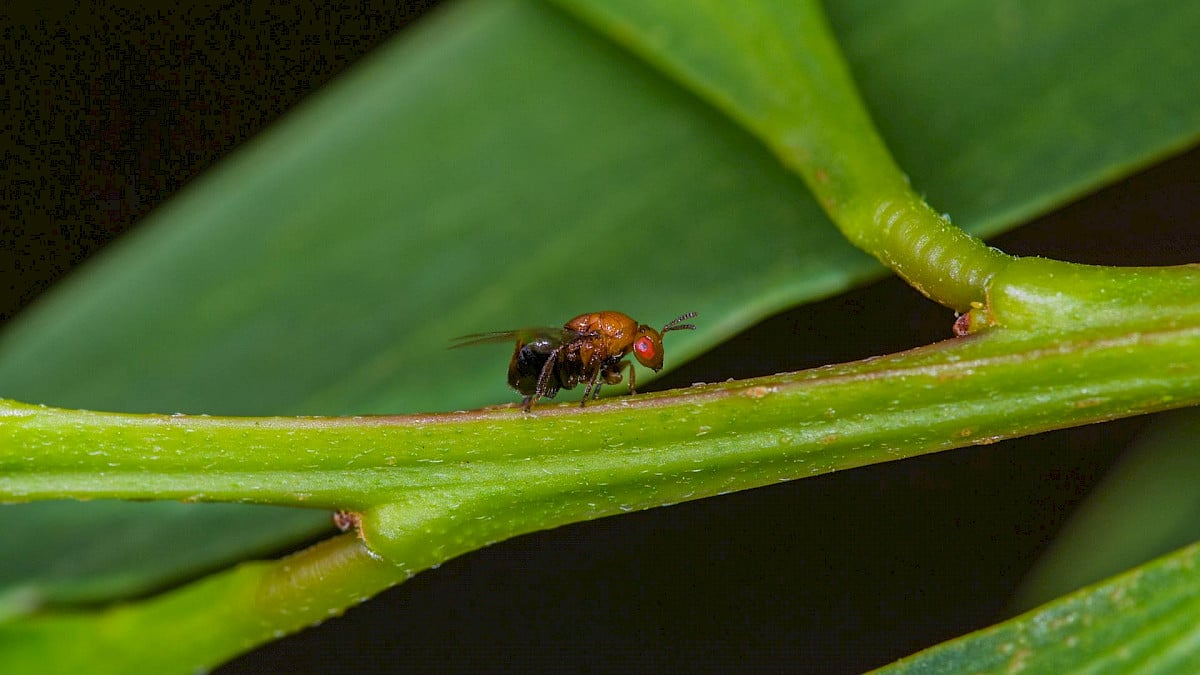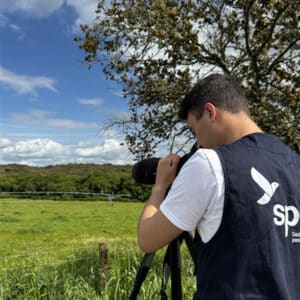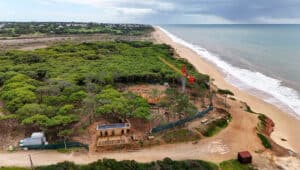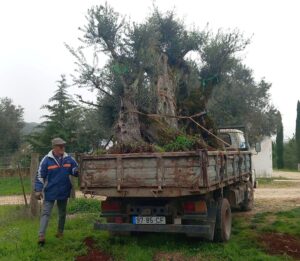Study has already released wasps “in various locations along Portuguese coastline”
A study led by the University of Coimbra has confirmed the ecological safety of the first biological control agent introduced in Portugal – a wasp native to Australia, to combat the invasive plant acacia.
“Trichilogaster acaciaelongifoliae is a small wasp native to Australia, which acts by depositing eggs in the floral and vegetative buds of the acacia, forming galls that interrupt its ability to reproduce and disperse seeds and growth, respectively,” explains Francisco López-Núñez, a researcher at the Centre for Functional Ecology (CFE) of the Faculty of Science and Technology of the University of Coimbra (FCTUC), who led the study.
“After extensive specificity tests, this biological control agent was selected and released in 2015 in various locations along the Portuguese coastline”, López-Núñez recalls.
“Three years after the introduction of this biological control agent, the team of researchers from FCTUC and the Polytechnic Institute of Coimbra demonstrated, through analysis of complex trophic networks, that this highly specialised insect did not cause direct or indirect negative impacts on non-target species”.
The research included the analysis and identification of “154 plant species, around 45,000 galls and 11,000 insects on the central coast of Portugal, as well as the construction and analysis of complex trophic networks between plants, galls and parasitoids”.
According to the University of Coimbra, these results show that, when properly planned and monitored, biological control can be a safe and effective strategy to help restore invaded ecosystems, with minimal impact on native biodiversity.
“The absence of unwanted effects on other native plants and insects is a very promising sign. This is a pioneering step in the Iberian Peninsula and very important for increasing confidence in the sustainable use of biological control in nature conservation,” concluded Francisco López-Núñez, emphasising that the study “reinforces the importance of long-term monitoring and demonstrates that it is possible to evaluate in detail the ecological interactions generated by biological control agents”.
Published in the journal Restoration Ecology, the Portuguese research is described as representing “a milestone in the rigour of post-release monitoring of biological control agents”.
To the lay person, this may mean very little, but to anyone who understands the damage caused by the proliferation of acacia in Portugal, it is very positive news. Only in February, farming website AgroPortal carried a text alerting to the fact that acacias are now “dominating the landscape”, compromising biodiversity, and ultimately the health of populations.
Beyond “replacing native species”, these plants “alter the soil, reduce water availability and create a green monopoly that suffocates natural diversity”. Thus, there is a lot to be said for the little Australian wasp.
Source: LUSA/ Agroportal




















